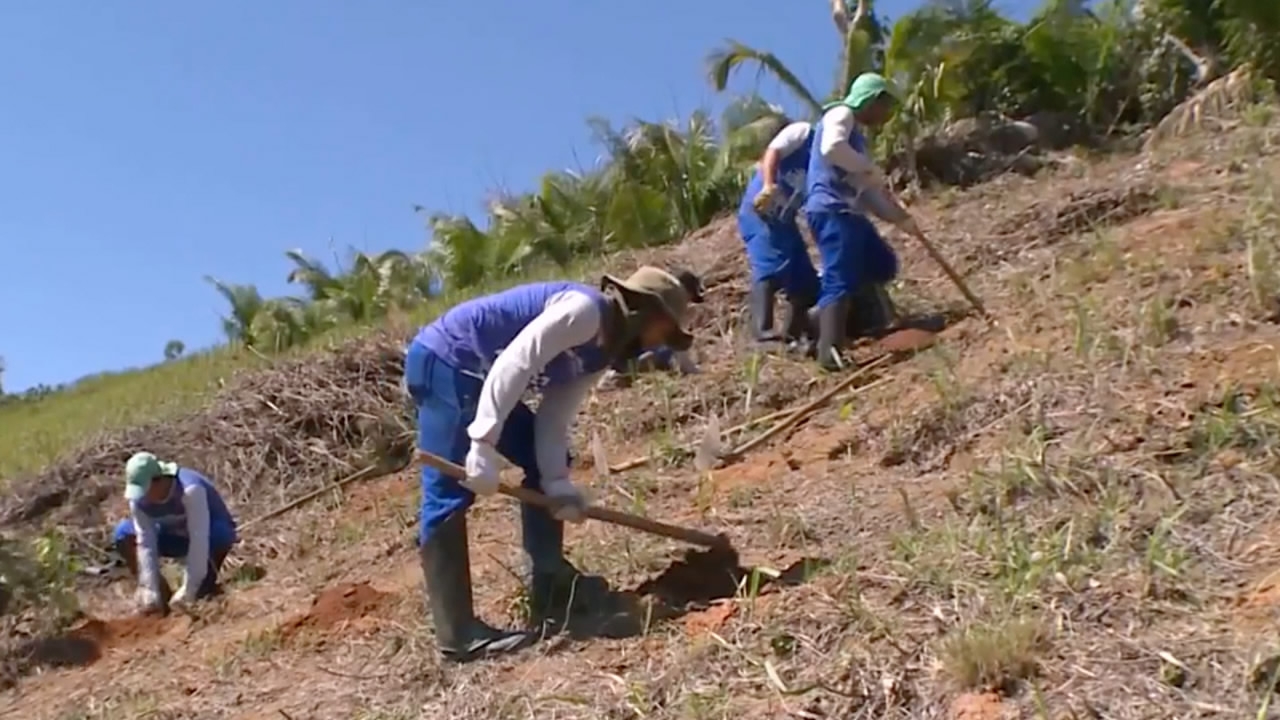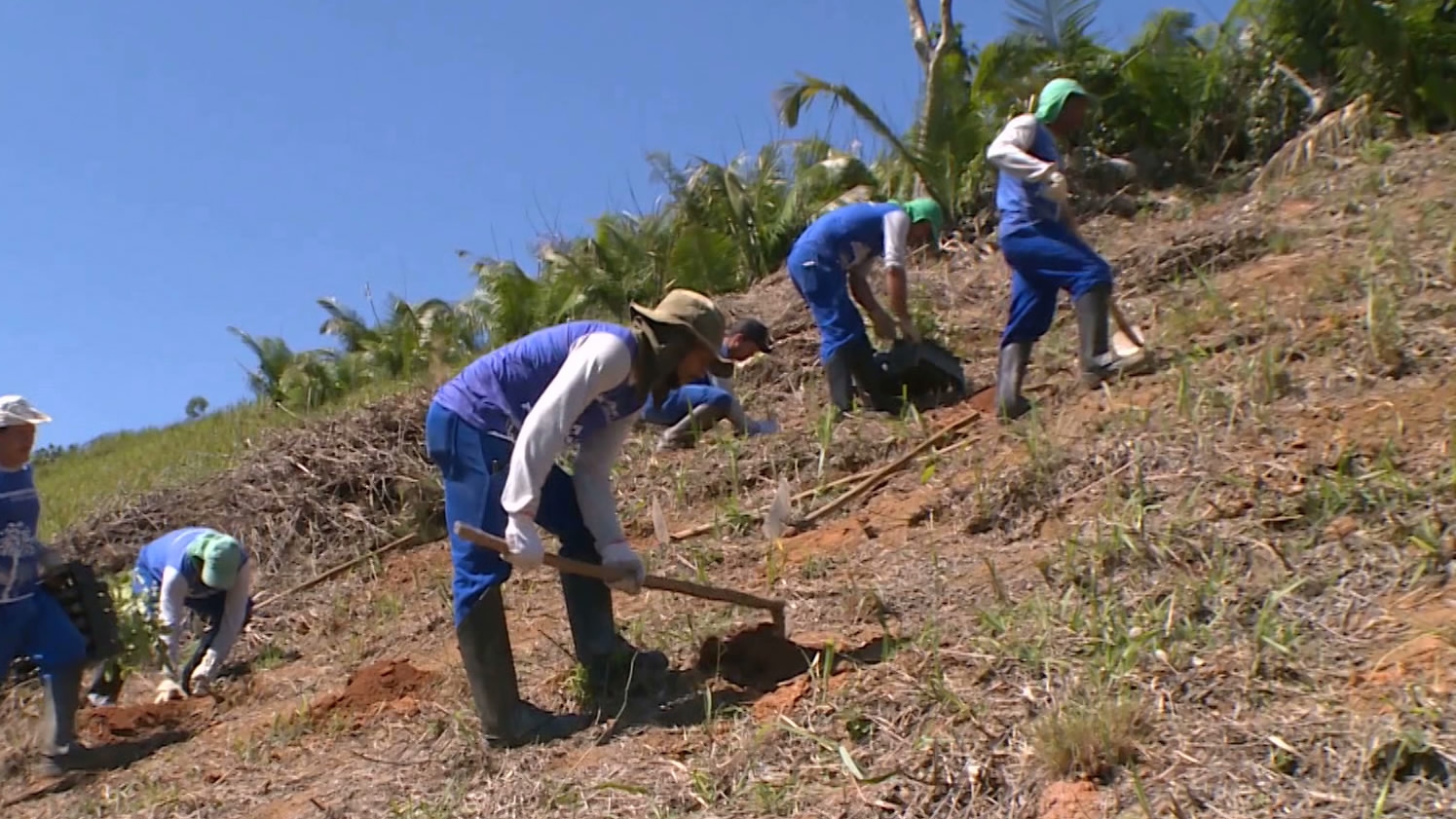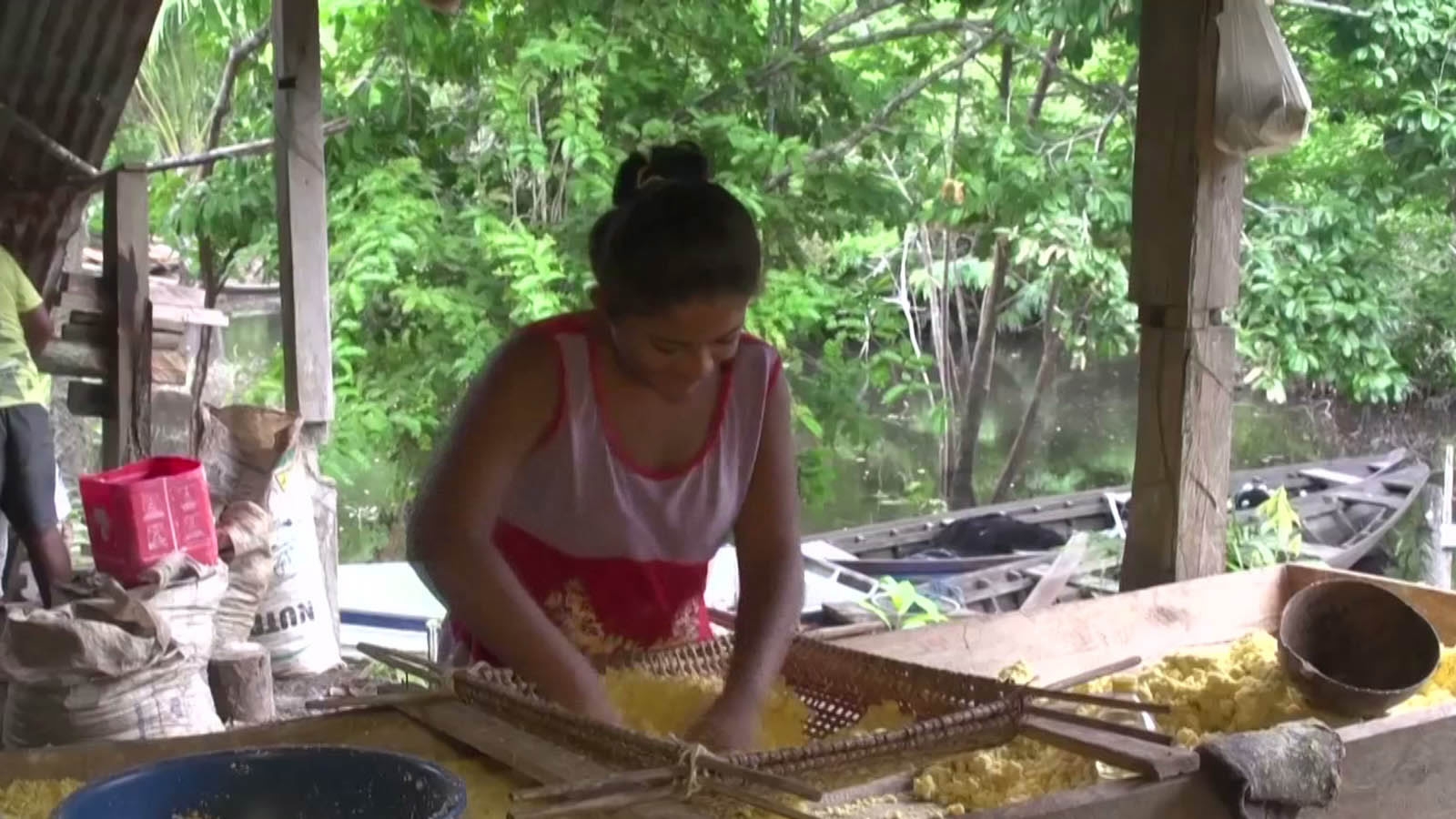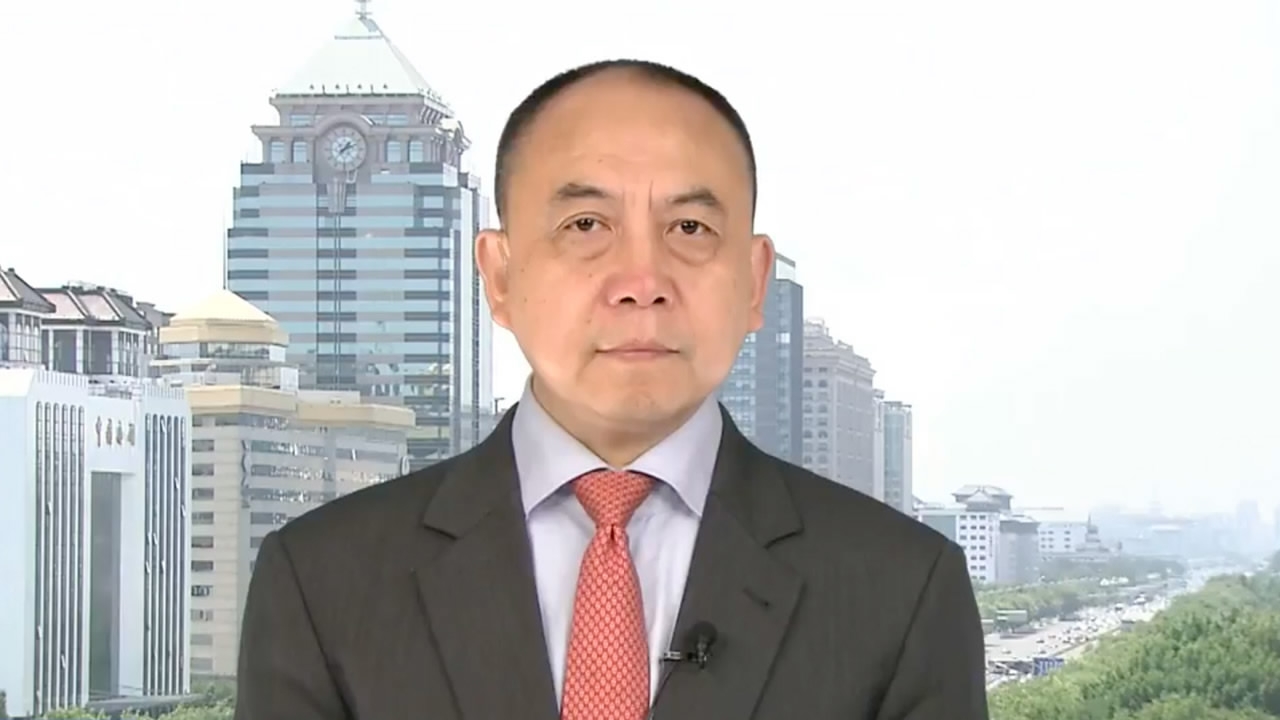
Enviro
08:36, 25-Sep-2017
Activists replant Brazil’s coastal rainforest one seed at a time
By CGTN America

While Brazil has been critical of the US decision to pull out of the Paris Climate Accords, environmentalists say the country can be doing more to protect its own natural wonders. One group is trying to do just that.
Brazil’s coastal rainforest once covered more than 1,000,000 square kilometers, stretching along the Atlantic coastline. Today, less than 10 percent remains intact, making it even more threatened than its more famous neighbor, the Amazon.
Only small patches survive in reserves like Tingua, located in the north of the state of Rio de Janeiro. One non-governmental organization (NGO), Onda Verde, is trying to expand what remains by planting hundreds of native tree species on the hillsides. It’s hard work that is already making a much-needed difference.

82 percent of the Brazil’s population lives on the coast. /CGTN Photo
82 percent of the Brazil’s population lives on the coast. /CGTN Photo
“82 percent of the country’s population lives on the coast, and they depend on environmental services,” said Helio Vanderlei, founder of Onda Verde. “So our mission is to educate, communicate and take action.”
Vanderlei started the group, whose name translates to "Green Wave" in English, as a local effort to preserve and expand a forest that is one of the most diverse ecosystems on the planet, second only to the Amazon.
Forest cover is essential for cooling the air in what is one of Rio’s hottest microclimates. So to expand that cover, the NGO has already planted 1,000,000 trees and 500,000 seedlings are being produced.
The group works to engage as many people as possible, using activities like nature photography to get people out and exploring the forest.

Amazon community turns from logging to protecting rainforests. /CGTN Photo
Amazon community turns from logging to protecting rainforests. /CGTN Photo
Through Onda Verde, the community is learning how the forest serves a vital function. Springs that were dry only three years ago are once again flowing because of the trees that were planted.
Vanderlei, however, is worried about the bigger picture: Moves by Brazil to follow the example of the United States, and drop its international environmental commitments.
“There is a crisis, and that is because Brazil signed a paper – the Paris Agreement – but does not keep its promises. And the US doesn’t believe in climate change and doesn’t sign anything. They are the same. The only difference is a paper.”

According to Qi Ye, the director of the Climate Policy Institute at Tsinghua University in China, the country is always keeping up with its Paris Climate Accord agreements.

SITEMAP
Copyright © 2018 CGTN. Beijing ICP prepared NO.16065310-3
Copyright © 2018 CGTN. Beijing ICP prepared NO.16065310-3